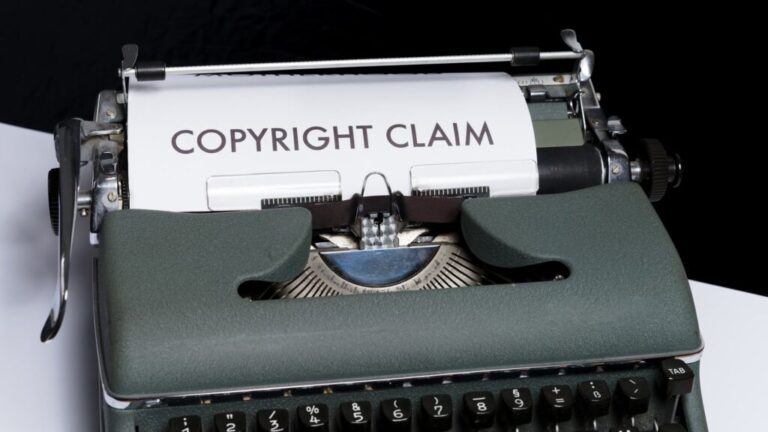And death shall have no… That’s enough! I have measured out my… Careful! Let the traffic policemen wear… Stop right there!
If I dared to complete any of these sonorous phrases, I’d run the risk of getting sued by the authors’ estates. For Dylan Thomas, T.S. Eliot and W.H. Auden (the authors in question) all died more recently than 70 years ago. And 70 years after the death of the author – or post mortem auctoris, to use the proper pompous terminology – is the end-point for copyright here in the UK, where I live. (In the US, it’s 95 years after a work’s publication.)
Ridiculous, right? I don’t mean it’s ridiculous that there should be a law of copyright, obviously. And maybe somewhere between 50 and 100 years is a reasonable interval during which an author’s beneficiaries, after reaping whatever inheritance immediately falls to them post mortem auctoris, may continue to rake in what they can every time anyone wants to reprint one of the author’s poems in full.
I mean that it’s ridiculous that anyone should have to pay for something so innocent as quoting a mere phrase, in what is, in any case, nearly always a spirit of praise or veneration.
I raise these points now partly in a party mood, since last week saw a rare righteous victory in the long and wearisome war between common sense and copyright law. Last week, a US judge ruled that the Warner Music Group do not, in fact, have the right to charge thousands of dollars whenever the song Happy Birthday appears in a film or TV show. That’s right. Happy birthday to you, happy birthday to… Etc. I have to be careful, because the song’s copyright in the UK can still be enforced. After all, it’s only 69 years since the death of Patty Hill, one of its co-authors.
Patty and her musical sister Mildred created the song in Kentucky in 1893 as an aid to encourage children to sing. They called it Good Morning To All and it was the same song we know, only with the words “good morning” instead of “happy birthday”. (The third line was “Good morning, dear children”.) Mildred died in 1916, but in 1935 a more familiar version of the song was finalised and licensed to a music publishing company. Which is what has enabled Warner since 1988 – the year it acquired the copyright – to collect an average of $2m annually in return for permissions. For film-makers and TV producers forced to cough up, I feel less sympathy, since there’s more money in those industries. Maybe they can afford it. But authors can’t, not with our advances.
A year or two ago, the acclaimed British author Blake Morrison wrote an article about the charges he’d paid for quoting, in a novel, one line by Mick Jagger (£500) and two by Bob Marley (£1,000). Weigh that up against the £5,000 average advance over here for a first novel. I won’t tell you what I got for my first novel when it was bought recently by a publisher. Let’s just say it was less than the average. So it made sense when I was asked to remove all song quotes, of which there were a few. I see now, also, that it’s a bit of a cheat to quote songs in novels: a cheap short-cut to creating a mood.
But not in works of non-fiction. A friend and I have just co-written a book called How To Sound Cultured: Master The 250 Names That Intellectuals Love to Drop Into Conversation (due out in November from Icon Books), and as the title suggests, it provides potted introductions to scary intellectual gorgons. Wittgenstein. Calvino. Zizek. People like that. With prose authors, we’ve been allowed to quote pretty much whatever we want. But when it comes to poets, we’ve been advised against quoting them at all, for the simple reason that we wouldn’t be able to afford it.
Why do poets write poetry in the first place? Don’t they want to be read, to be appreciated? What I’m trying to say is: don’t they want to be quoted? Isn’t that sort of the aim?
On that shrill note, shouldn’t song lyricists feel flattered? Am I being naive? Is it true what Jagger said (I won’t quote him) about not always being able to, cough, achieve what you’d like?
I’ve written the odd poem myself. Now I realise that winning a Literary Review poetry prize in 2003 isn’t quite on a par with winning a Pulitzer. Nevertheless, I hereby grant permission to whoever may be interested to quote as much as they like from my coruscating 20-line exploration of the pros and cons of marriage (pithily entitled The Gamble). You’re welcome to quote any of it, whether it be the wry opening lines, the lugubrious middle section, or the wrenching conclusion. Hell, quote all of it. But please, whatever you do, don’t wait until 70 years post mortem auctoris.
Let’s be clear about where the fault lies. I don’t (I can’t) blame poets and lyricists for striving to claim what pennies they can in return for their wistful twists or turns of phrase. And I don’t blame their heirs for cashing in, since the law allows them to. Who would argue with the law? I would. I blame the law, since in this instance, the law (to quote Charles Dickens) is an ass. The termination of Warner’s claims on the copyright of Happy Birthday is a serious cause for applause. Lyricists and poets should seize this moment to resolve to be less precious, waiving their rights to charge for the compliment of being quoted, and ushering in a sea change in copyright law. Now that really would be a happy birthday.

